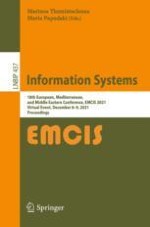2022 | OriginalPaper | Chapter
Using a Hybrid Approach of Game Design, Blockchain Technology and Learning Analytics in Higher Education Institutions: A Case Study of the British University in Dubai
Authors : Khaled Al Shehhi, Khalid Almarri
Published in: Information Systems
Publisher: Springer International Publishing
Activate our intelligent search to find suitable subject content or patents.
Select sections of text to find matching patents with Artificial Intelligence. powered by
Select sections of text to find additional relevant content using AI-assisted search. powered by
